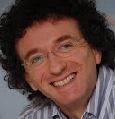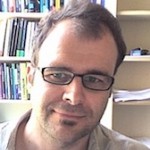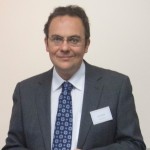Many compelling thought experiments have played a prominent role in the ethics literature: the transplant case, deciding on the best policies from the original position, being kidnapped and attached to a famous violinist. A wide range of thought experiments in ethics have a distinctive feature: they feature forced choices with fixed outcomes. In a typical ethics thought experiment, an agent A is faced with choice C1 and C2. If A picks C1, then O1¬ will occur. If A picks C2, then O2 will occur. The thought experiment forces the choice between C1 and C2: they are the only relevant options. To suggest another option, C3, is to violate the rules of the game. Likewise, O1¬ and O2 are the only possible outcomes. It is not merely probably that one will occur; it is definite. Suggesting that something other than O1 and O2 will occur is, again, not to play the game.
Starting with the plausible assumption that good thought experiments must be metaphysically possible, I explore whether thought experiments with forced choices and fixed outcomes are metaphysically possible. In my view, attending closely to features of imagination suggests that pessimism is warranted. I contend that the best account of our knowledge of metaphysical possibility is via imagistic imagination. I develop a key distinction between types of content in imagistic imagination, and use this distinction to analyze the metaphysical possibility of forced choices and fixed outcomes. I reach a pessimistic conclusion: we have no reason to think that forced choices and fixed outcomes are metaphysically possible.
I conclude that that any ethical view that counts outcomes as ethically relevant will have to take seriously moral risk, a result I thinks accords with common sense. In everyday ethical reasoning, choices are not forced and outcomes are not fixed. We take into account the chancy nature of our decisions: choosing C1 will likely lead to O1, but there is a chance it will lead to O1.1 or O1.2 or…. On my view, the methodology of thought experiments itself requires that we consider moral risk. This has the implication that some putatively devastating counterexamples in ethics prove to be less devastating than widely thought.
Philosophy Seminar Series
Date: Thursday, 9 Oct 2014
Time: 2pm – 4pm
Venue: AS3 #05-23
Speaker: Peter Kung, Pomona College
Moderator: Dr. Tang Weng Hong
About the Speaker:
 Peter Kung (Pennsylvania, B.S. in Computer Science & Engineering, Stanford, M.A. In Philosophy, NYU, Ph.D. In Philosophy) is Associate Professor of Philosophy and former Department Chair at Pomona College. He has held visiting or teaching appointments at New York University, Stanford University, Claremont Graduate University and now the National University of Singapore. Professor Kung’s research centers on two areas: the philosophy of mind, in particular the thought experiments, where is coediting a collection for Oxford University Press titled Knowledge Through Imagination; and epistemology, where he focuses on the limits of skeptical challenges and the proper treatment of probabilistic reasons. He is grateful to have the chance to explore Singapore with his wife, who is also visiting at NUS, and two young children.
Peter Kung (Pennsylvania, B.S. in Computer Science & Engineering, Stanford, M.A. In Philosophy, NYU, Ph.D. In Philosophy) is Associate Professor of Philosophy and former Department Chair at Pomona College. He has held visiting or teaching appointments at New York University, Stanford University, Claremont Graduate University and now the National University of Singapore. Professor Kung’s research centers on two areas: the philosophy of mind, in particular the thought experiments, where is coediting a collection for Oxford University Press titled Knowledge Through Imagination; and epistemology, where he focuses on the limits of skeptical challenges and the proper treatment of probabilistic reasons. He is grateful to have the chance to explore Singapore with his wife, who is also visiting at NUS, and two young children.
 Qing Lun is pursuing his MA in NUS, where he is currently engaged in research on modal metaphysics.
Qing Lun is pursuing his MA in NUS, where he is currently engaged in research on modal metaphysics.







